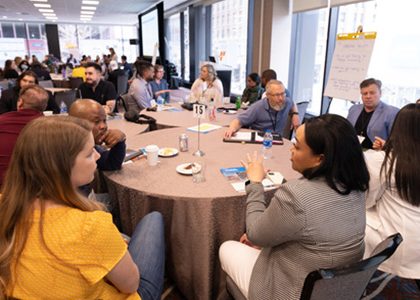Submit your letter to the editor via this form. Read more Letters to the Editor.
Bay Area roads too
busy for roundabouts
Dearly departed Mr. Roadshow was a big fan of roundabouts, touting their use on Bay Area roads multiple times. I grew up in New Jersey with traffic circles 60 years ago. None of those circles exist today, replaced by signalized intersections.
In order to work, roundabouts demand a culture of sharing and cooperation, requiring multiple occasions of merging and zippering to accomplish the transit through the circle. The Bay Area is notorious for fighting over every inch of asphaltic real estate.
Roundabouts work fine for low traffic volumes, but they become a nightmare in high volume traffic conditions, such as the Bay Area.
Eugene Ely
San Jose
Expanded solar could
end PG&E monopoly
Pacific Gas & Electric and the California Public Utilities Commission are afraid of solar power for one reason: It works.
We have had solar panels on our house for 12 years and our largest electric bill has been $12. There have been no issues with the system. Monthly I can see my energy production, and we produce far more than we use.
Every home in the Bay Area should have solar installed and we could break the PG&E monopoly.
August Michaels
San Jose
Alternative technologies
needed to bridge divide
Re: “State too reliant on fiber to span the digital divide” (Page A6, May 7).
The editorial’s insights into California’s digital divide are vital. Embracing alternative technologies beyond fiber optics for last-mile connectivity is crucial. California’s largest fiber providers have demonstrated through their private investment that it’s not feasible in all areas. The California Public Utilities Commission can’t just be open to technological alternatives like fixed wireless; it must translate this openness into tangible policies that create a level playing field for non-fiber technologies — which meet or exceed high-speed standards — to compete.
Californians trapped on the losing end of the digital divide cannot wait. Deploying fiber is often prohibitively expensive, but the true cost lies in denying timely connection to California families. A preference for fiber cannot trump the outcome of universal connectivity for all Californians. The CPUC must deploy all broadband technologies that meet or exceed state and federal standards to ensure no one is left behind in today’s increasingly digitized society and economy.
Julian Bauzon
San Mateo
This post was originally published on 3rd party site mentioned in the title of this site






